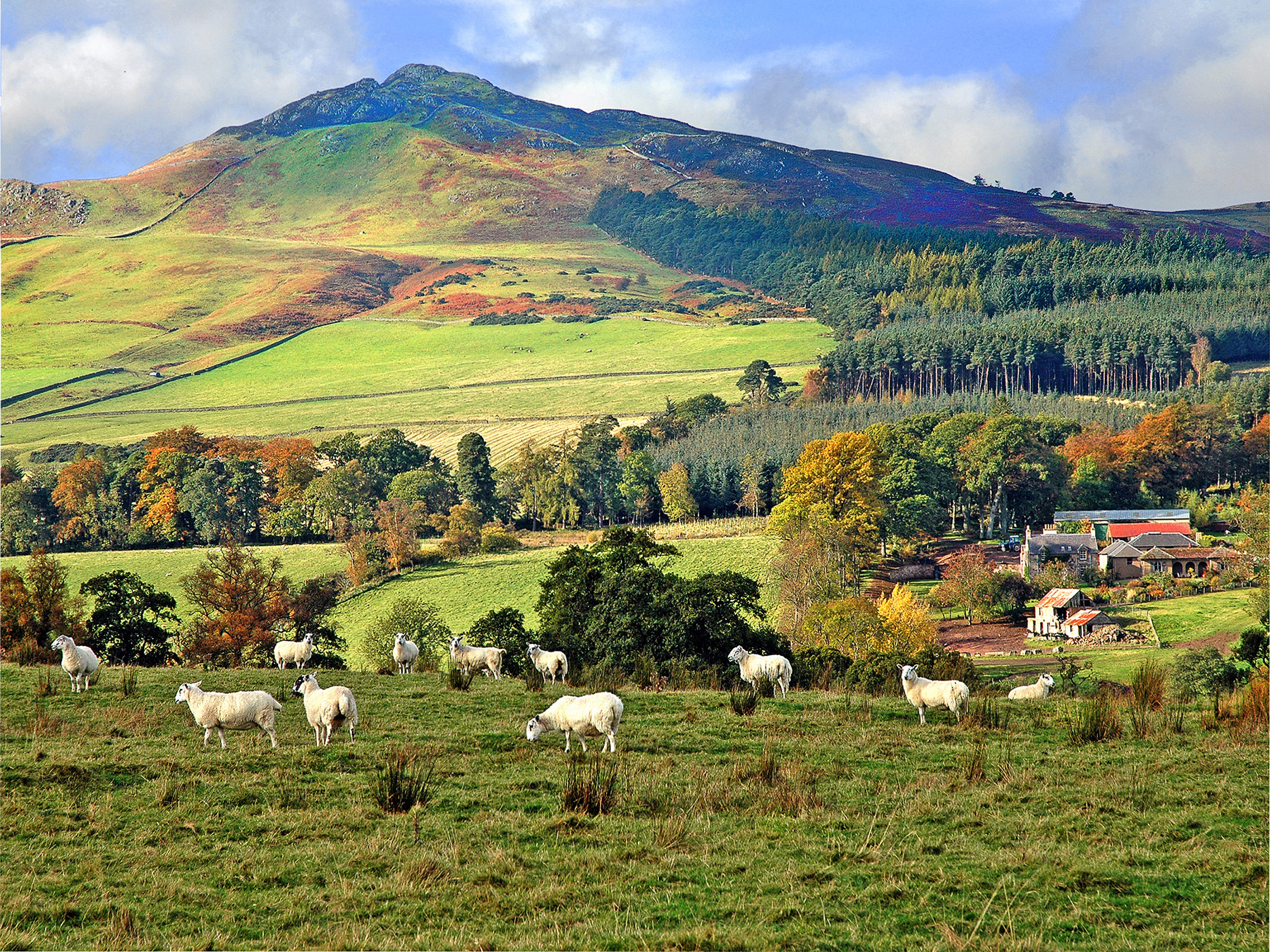 Where Are We from ?
Where Are We from ?
Clan Turnbull hails from the Rulewater Borders area between Scotland and England. The area and people were quite different from the Highlander which is the typical "Scot" portrayed by the media. A really good book about the borders and their lifestyles is "SteelBonnets" by George Macdonald Fraser. Our home of old on the Borders is called Bedrule and stretches up to Jedburgh. BUT - keep in mind Turnbulls like many Border families wandered where ever they wanted. It's not uncommon to see their name just about everywhere along the border and history trail.
How Did We Get Our name ?
According to history, William Roule of Bedrule saved Robert The Bruce ca. 1300 from a wild bull that was charging. The story says that William jumped in between the bull and the King and proceeded to turn it down to the ground and break it's neck. Robert was so gratified that he dubbed William Turn-E-Bull and gave him the barony of Bedrule and area. William Roule Turnbull assumed the motto " I Saved The King "
The Turnbull Name Is Quite Unique.
Before the 14th century, surnames changed with every generation. The obvious ones; John had a son named Will, he would be Will Johnson. However, when this Will had a son called John, he would be known as John Willson.
The barons of Normandy used their homelands for identification such as Henry de Perci, but it was about 1360 before they formerly took up the surname of Percy. So what am I twittering on about?
The Turnbull name is quite unique, as it is the ONLY name that can be traced back to a specific date. There is documented evidence that King Robert bestowed lands in Phillipshaugh to a William of Rule, naming him Sir William Turnebull, on August 15th 1315.
This also knocks on the head, the theory that the name came from the French Turnbouf, which did not exist until 100 years later, when some of the Scots fled to France to fight against the English. - Albert Turnbull, 2008
Turnbull Name Migration to Europe
The Scot surname Turnbull went to Germany, specifically Prussia, in the 15th century. They went as mercenary soldiers and/or merchants. Over the decades, the spelling was Germanized to Tormuel. Some two hundred years after the original migration, a descendant was Aibrecht Drommel, who lived in Tilsit. East Prussia around 1679. He was, of course, completely German.
But the most important migration of Turnbulls was to France. Starting in the fifteenth century, and as part of the "Auld Alliance" to help the French king reconquer France from the English, a large number of Scottish soldiers migrated. Joan of Arc was involved in the early fight to drive out the English.
After the fighting had subsided the French king gave out land as the reward to his Scottish followers. The Turnbulls were among these, and married French wives. One of the branches became Tournebulle, and a French descendant was Stephan Tournebulle, who in 1507 was the procurator of the "Scottish Nation" at the University of Orleans. Orleans was where Joan of Arc and her Scoto/French forces had fought the English.
Another branch of the family settled in Normandy, where the spelling became Tournebu or Turnebu. A French descendant of this branch was Adriaen Tournebu, (1512-1565) a Hellenic scholar. Of this man, John Hill Burton in rFhe Scot Abroad (1898) said "a learned French professor, whose French name was Tourneboeuf (actually Tournebu). which some writers maintain was a translation of Turnbull; further they declare him to have been the son of a Scotchman settled in Normandy." George Black in his classic Surnames of Scotland (NY Public Library, 1946) says of the French and Normandy Turnbulls: "Persons of the name settled in France bore (talking of their coat of arms) argent, three bulls heads, couped sable, armed and langued gules, but the Tournebu or Turnebu family in Normandy, who have been claimed as of Scottish origin, had, for arms argent, a bend azure."
The family went to Berry Province (Joan of Arc's scenes of action), where the name became Tourneboeuf. Another source substantiating the claim of Scot ancestry is in Rev. Forbes-Leith magnificent 2 volume Scot Guards + Men at Arms in France (1882, of which the author possesses a copy). On pages 206-207 of volume 0, Forbes-Leith, who was also a Roman Catholic priest, describes the Scot colony that settled in Berry Province C1425. One of the families was Turnbull, and in recent years, 1 have corresponded with the Mayor of Aubigny-sur-mer, who has furnished collaboration of the above, and given some modern traces of the 15th century Scottish presence.
The author Rennie states that the Tournebulles of Champagne Province were likely descended from a Scot, and their name is closer to the original spelling than the Normandy Branch.
Finally, another source which sheds light on the French Turnbulls is Dictionairre de Noblesse de Francaise by M. de St. Simon and Sereville (Paris 1995) listing all the nobility of modern day France, on page 956, the authors state:
Name - de Tournebu
Resident – Normandy
Coat of Arms - As described above by Black
Extraction - Chevaleresque - from mounted knights. Ennobled 1463 and again 1540.
No reference is mentioned here of their Scot descent, although it is nearly certain. So, the Turnbulls established a distinctive presence in France starting out as mercenary allies of the Dauphin and Jeanne D'Arc, and, in later centuries, becoming prominent French nobility, even to the present day.
Don Hanson
Scholar of Scottish Migration to Europe
